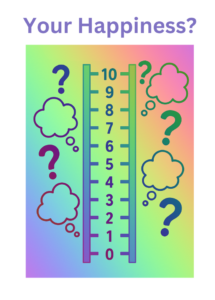
A Lesson in Critical Thinking Skills for Researchers, Students, and Other Curious Minds
Have you ever been the party pooper who interrupts a casual conversation with a skeptical, “But what’s the sample size?” or “Did they actually measure happiness, though?” If so, welcome to the club! You’re officially one of those wonderfully annoying critical thinkers who keep academia honest.
Being critical in research doesn’t mean being negative; it means thoughtfully evaluating both the merits and the challenges of research. It’s about discerning reliable from unreliable research, distinguishing valid from invalid measures, and carefully examining the evidence presented.
Yascha Mounk brilliantly illustrates these critical thinking skills in his excellent (and yes, critically vetted by yours truly) article, “The World Happiness Report Is a Sham,” published in Persuasion. This week, in honor of World Happiness Day (yes, it’s a thing), headlines gleefully reminded us yet again that Finland is supposedly the happiest place on Earth. South Africa is ranked in 95th position out of 147 countries, sandwiched between Turkey, slightly happier and Mozambique, slightly less happy. Mounk investigates the source—the World Happiness Report, published annually by the Wellbeing Research Centre at the University of Oxford, in partnership with Gallup and the UN Sustainable Development Solutions Network. The report ranks global happiness using a single-question survey called the Cantril Ladder:
“Please imagine a ladder with steps numbered from zero at the bottom to ten at the top. Suppose we say that the top of the ladder represents the best possible life for you and the bottom of the ladder represents the worst possible life for you. If the top step is 10 and the bottom step is 0, on which step of the ladder do you feel you personally stand at the present time?”
Sounds simple, right? Perhaps too simple. Mounk neatly unpacks the issues lurking beneath this seemingly innocent ranking:
📉 Problem 1: Single Question, Shaky Validity: Is asking people to place their lives on a ladder truly capturing happiness or merely reflecting broader concepts like success, wealth, or status? Research suggests that respondents interpret the ladder differently, calling into question its validity as a measure of happiness specifically.
🔎 Problem 2: Small Samples, Big Claims: The World Happiness Report typically surveys around 1,000 respondents per country—a relatively small sample from which to confidently generalize about the happiness of millions. Imagine tasting just one bite from a single pizza and then confidently ranking every restaurant in the city. Such sweeping conclusions may warrant a healthy dose of skepticism.
😬 Problem 3: Contradictory Evidence Ignored: Scandinavia consistently tops happiness rankings yet simultaneously boasts some of Europe’s highest antidepressant usage and suicide rates. Hmm… seems contradictory. Happiness clearly has multiple dimensions, not all captured by a single rung on a ladder.
⚠️ Beware of “Elite Misinformation”
Mounk calls reports like the World Happiness Report a form of “elite misinformation”—high-profile, authoritative-sounding, yet deeply flawed. Media outlets, even prestigious ones, often uncritically share such findings because sensational headlines drive clicks and conversation.
Your role, dear critical thinker, is to kindly and constructively challenge such claims, fostering an intellectual culture in which nuance thrives over superficial statistics.
So next time someone casually claims “They say Finland’s the happiest,” gently smile and ask:
- “How exactly was happiness measured?”
- “Did anyone check the reliability?”
- “Do the reported findings match the real-world data?”
You might slightly annoy your friends, but you’ll plant the seeds of critical thinking—one thoughtful question at a time.
🎓 Want More on Critical Thinking? Join me for a free webinar on “Crafting the Literature Review for Your Dissertation” next Thursday, April 3, 2025 @ 18:00 (SAST). It’s open to anyone who is writing or reviewing research and will sharpen your critical thinking toolkit. Register here: https://us06web.zoom.us/webinar/register/WN_JWxrG4EETo6sQPc1WWi9bg
Keep questioning, keep thinking critically, and yes, stay happily skeptical!
Contact me at [email protected] if you would like me to assist you with your dissertation or other research.